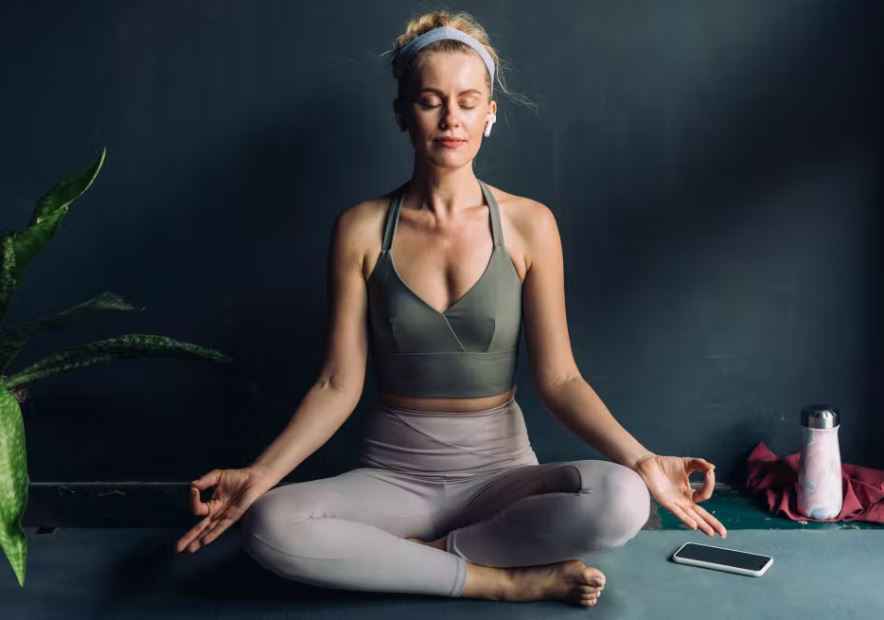Meditation is the set of practices that promote physical and emotional well-being through mindfulness. But for this to generate positive effects, it must be done properly. Following the 12 Best Meditation Tips allows beginners to meditate correctly.
Meditation is a practice that dates back thousands of years and aims to focus attention on a stimulus to reduce negative thoughts, be more aware of the present and be able to relax. There are multiple benefits of meditation, helping both to improve cognitive variables such as attention, visuospatial ability, empathy, or stress reduction; and physiological, as it improves the state of the immune system and decreases body tension.
For its correct practice, some tips can be useful to you. It is important to keep in mind that the purpose of meditation is not to leave the mind blank or not to think, but rather it is to focus our attention, concentrate on a stimulus that can be both internal and external, and reduce the importance given to thoughts or sensations. negative. It is also essential to maintain good posture and exercise in a suitable place and time of day.
If you are thinking of starting the practice of meditation, the 12 Best Meditation Tips for Beginners allow you to do it correctly.
What is Meditation?
If we value the meaning of the word meditation, it comes from the Latin term “meditated” which means to reflect, to focus attention on something, to become aware of it. The practice of meditation allows us to relax both the mind and the body since if we focus our attention on an object, a word, a part of the body, or our breathing, we manage to reduce the thoughts or concerns that affect us and cause us discomfort.
The origin of practice of meditation dates back thousands of years ago, is located in the East, specifically in India, later spreading to the rest of the world and reaching different cultures, giving rise to the current panorama. Currently, the practice of meditation is common, being able to do it in different ways or with different purposes.
So we can meditate alone at home, we can go to meditation classes, or even use this technique to treat mental or physical health problems. Good results have been obtained to reduce stress, for example, applied in a complementary way to other interventions, meditation has proven effective in improving the state of patients with cardiovascular disorders.
What are Meditation Benefits
The main beneficial effects of meditating are: it helps reduce stress; generates positive effects on the immune system, an increase in antibodies has been observed; improves attention capacity, helps the correct use of brain resources for this function; predisposes to better interact with others, better empathy; increases pain tolerance; better memory function, especially working memory and other functions such as visuospatial processing; and facilitates the appearance of positive thoughts.
12 Best Meditation Tips for Beginners to Meditate Correctly
- Do Not Try to Make your Mind Go Blank
Contrary to popular belief, the purpose of meditating is not to leave the mind blank, since it is impossible to achieve it, think that even when we sleep our mind remains active. Thus, the objective will be to focus attention on a specific stimulus (a word, a part of the body, our breathing…) thus helping us to free ourselves from other thoughts that cause us discomfort.
- Find the Right Posture
Different postures can be performed to meditate correctly. The most common, or at least the first that comes to mind, is sitting cross-legged, although we can also use a chair or lie down if the posture is more common to us and helps us achieve greater relaxation.
The essential condition that we must maintain regardless of the chosen posture is to have the sword straight, thus facilitating better breathing and avoiding tensing the muscles, we will not cross our arms or legs, seeking greater relaxation.
- Gradually Increase Your Meditation Time
When we want to learn to perform an exercise, it is common for us to spend a little time at first to gradually increase it until we reach the recommended time that works best for each one of us. In this way, you can start doing practices of 1 or 5 minutes to finally reach 20 or 30 minutes.
Of course, to be able to do it correctly, it will be necessary that you exercise it regularly, if possible every day since at the beginning it is very likely that it will cost you. Do not focus so much on getting it perfect the first time, but more on continuing to practice, since that will be the only way to get it right.
- Choose Comfortable Clothes
To relax, it is necessary to feel comfortable and for this purpose it will be essential that our clothes are appropriate. Choose a set that does not constrict you, that is loose and that also helps you maintain a good temperature, think that you will be still for a while, so you may catch a cold. Very hot or cold also does not allow us to relax and meditate properly.
- Don’t Force Yourself to Stay 100% Still
Forbidding you to do something often causes the response or need to do it. Thus, although it is advisable not to move, if we notice that something is bothering us, we feel itching in some area of the body or we want to sneeze or cough, we will not avoid doing it, but we will proceed to do it without giving it much importance, to relax again later.
If we notice that the sensation of discomfort persists and we continually have the sensation of itching or discomfort, we will try to focus our attention on other stimuli so that these sensations lose strength.
- Choose a Quiet Place
To relax, the environment must be adequate, that is, that there is not much noise or the surface or place that we choose to meditate is comfortable, we will take into account, as we already mentioned, the temperature or the light.
You can choose your room, the dining room, the terrace, or even a public place like the beach, the mountain, or the gym. The important thing is that the environment is adequate to be able to carry out the practice correctly, relax, and not be distracted by external stimuli.
- Register your Practices
One strategy that can help you establish the habit of meditating can be to record the times you do it, so you make sure you follow up, it motivates you more to continue practicing so you can write it down and also allows you to see the progress, observing how gradually increases the duration of each session.
- Focus Attention on a Stimulus
As we have already mentioned, the way meditation uses to relax and disconnect the mind from worries is to focus attention on a stimulus. These target objects can be very diverse, located both inside and outside the subject. For example, we can focus our attention on our breathing; in a word, a mantra; in a sound; or a part of the body, among many other possibilities.
- Choose the Best Time to do It
Each person knows their level of activation during the day when they have more energy. In the same way, there are also external variables that influence, such as work, family, or the noise that there may be at certain times of the day. So choose the period that works best for you, we can practice it both in the morning and at night.
Yes, we must keep in mind to be able to do it correctly, that is, it is necessary to be relaxed but without reaching the point of falling asleep since that way we will not be able to complete the exercise and continue improving if you see that doing it at night or lying in bed fits you Dream better look for another time.
- Give Yourself some Post-practice Time
The state of relaxation that we have achieved with meditation is not good to tell suddenly since, in this way the whole process that we have carried out during meditation would not be of any use, we would recover the feeling of stress instantly. In this way, it is recommended to get up and return to the activity little by little, giving ourselves the necessary time so that it does not involve a very abrupt change.
- Start doing the Meditation with Someone you Know
Starting the practice of an exercise together with another person can help us stay more motivated, so we can share our progress, the strategies or techniques that have worked the most for us, or what our sensations are. It encourages us not to give up and to be more constant, wanting to improve, benefiting us especially when we are new and practice is more complicated for us.
- Do not try to Avoid Thoughts
To reduce worries and negative thoughts, we must not prohibit ourselves or avoid thinking about them, but simply let them happen, without giving them importance, since this will be the way to reduce them.
It is also important that you focus on the present, which means that you focus your attention and be aware of what is happening or of the specific stimuli of the current situation. In this way, we will also be able to restrict thoughts linked to concerns that concern the past.
Final Words
As with other practices, such as sports, meditation offers us different possibilities of doing it, adapting to the characteristics and needs of each subject. Not everyone works the same techniques or the same way of executing them. The above-mentioned 12 Tips help you with the correct meditation, make sure which ones are more useful for you and which one you lack.
See More: 10 Benefits of Mindfulness on Body and Mind
Follow Top and Trending on Google News and receive the latest alerts and the main news about apps, technology, beauty, entertainment, and all the top 10 related posts.



